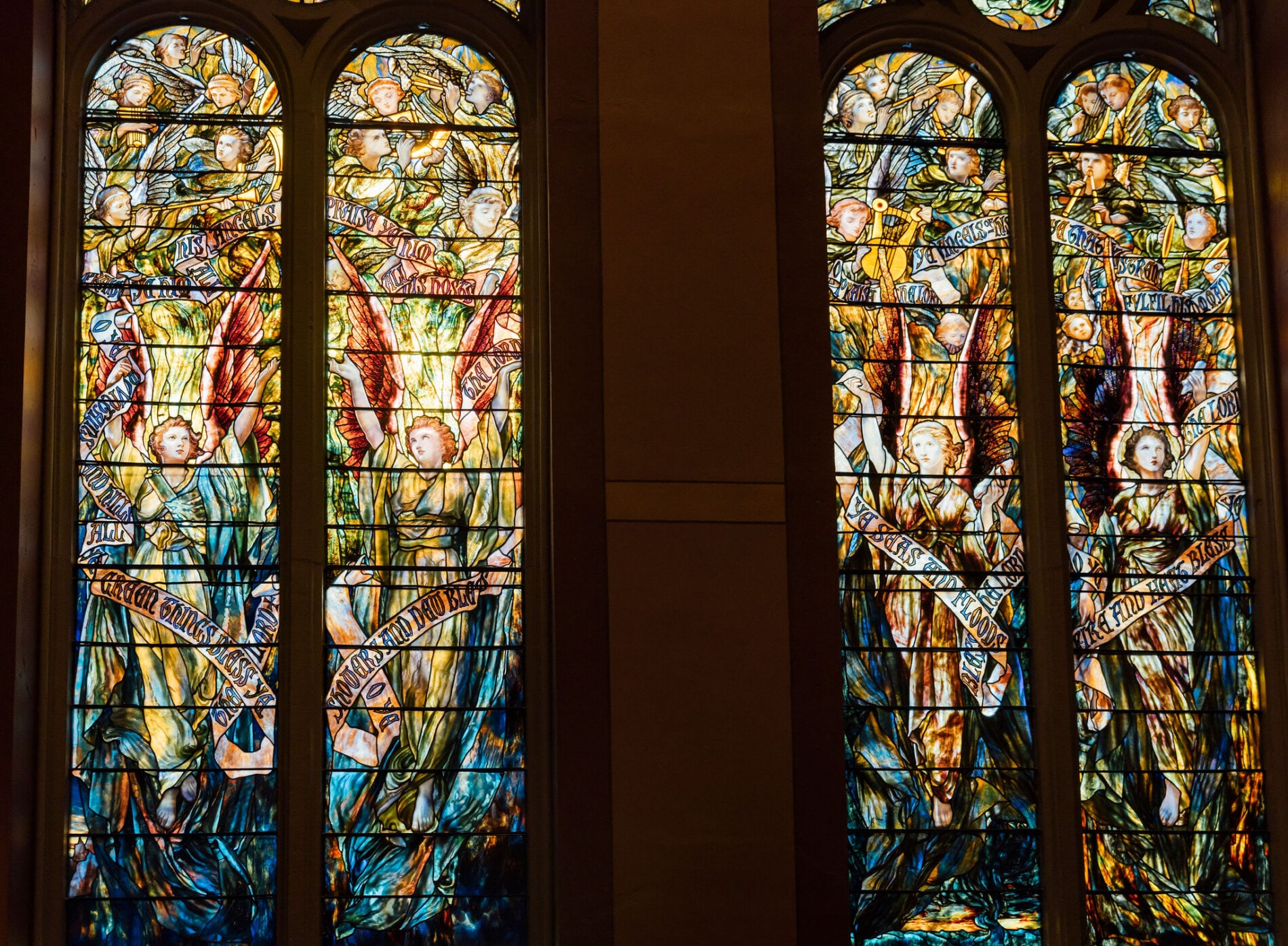
A Holy Week Pastoral Message from Pastor Mike
Last Sunday my “sermon” was a reading of the entire story of Jesus’ execution, from the moments after his “Palm Sunday” entry into Jerusalem to his last breath. After the service several people commented to me that they saw parallels between this story and what is happening in our society today. Indeed. As I read it, there are at least two important aspects to how this story resonates today, one timely and political, the other timeless and personal.
In the Bible, Pilate is the Roman official most responsible for the execution of Jesus. Although, especially in Luke, Pilate seems to make an honest effort to avoid executing an innocent man, in the end he gives in to the crowd, itself urged on by the religious leaders aligned with Roman power. In succumbing to the crowd and killing Jesus, Pilate reenacts the brutal sacrifice that those in power always return to: as Caiaphas, the High Priest says, “It is better for one man to die for the people than for the whole nation to be destroyed.” Find someone, or some group, to vilify and blame, and punish that one to gain favor with others. Sacrifice the one for the many.
Today, that is precisely what we see President Trump and his administration doing. Drawing on the fears of (some of) the people, he has irrationally (and yet, very rationally as a political calculation) vilified and blamed immigrants, trans people, federal employees and others for the (alleged) ills of our country, and he is systematically sacrificing them to gain favor and build political power. These people are being sacrificed in the same pattern as Jesus: Mahmoud Khalil, Rumeysa Ozturk, Mohsen Mahdawi, Kilmar Abrego Garcia, Juan Francisco Méndez, and so many others. This week, when we recall the suffering of Jesus, we can mourn that he is suffering again alongside these beloved children of God. We need to sit with that and not look away.
The way to heal this political sin starts with the timeless and personal aspect of this story. It starts with recognizing the importance of Peter’s tears. When Peter denies three times that he is a follower of Jesus, and Jesus looks across the courtyard at him, Peter “went out and wept bitterly.” It is natural for us, today, to pay attention to those tears, to that shame, guilt and remorse. But there are two ways such attention would have been absurd to those formed in Roman culture. First, Peter was a fisherman, a common laborer, a nobody. To care one way or the other about his tears was nonsensical. Peter, like all rustics, should have remained invisible. Secondly, should one, for some strange reason, notice those tears, they should have evoked scorn or mockery, not empathy nor compassion. To be compassionate toward such a man was weak.
David Bentley Hart writes that, in some ways, the very concept of universal human dignity was born from those tears: “Our modern notion that there is such a thing as innate human worth, residing in every individual of every class and culture, is at best the very late consequence of a cultural, conceptual, and moral revolution that erupted many centuries [ago], and in the middle of a world that was anything but hospitable to its principles. And I am tempted to think that the nature of that revolution became visible for the first time only in the tale of Peter’s tears” (in “Human Dignity Was a Rarity Before Christianity”).
It is a moral achievement of civilizational significance that Peter’s tears matter – and that the tears of Mahmoud, Rumeysa, Mohsen, Kilmar, and Juan matter. So do the tears of individual human beings in Ukraine, Congo, Gaza, Israel – and everywhere. I believe that moral achievement is being threatened in the world today, significantly led by the religious right, which has begun to publicly mock the very notion of empathy.
But empathy, and the resulting compassion, are of God. And in a political system that claims to be of the people, by the people, for the people, we bear the responsibility to use every power at our disposal to non-violently resist the casual dismissal of Peter’s tears, and the individual human dignity to which they gave birth.
This Holy Week, take time to be shaped and reshaped into the story that reveals the truth about the unholy sacrifices being made in our world, and that calls us to the action that comes from compassion for all, each and every one, of God’s children.
